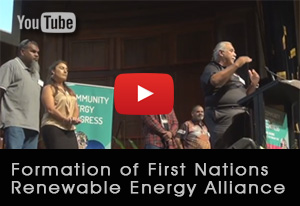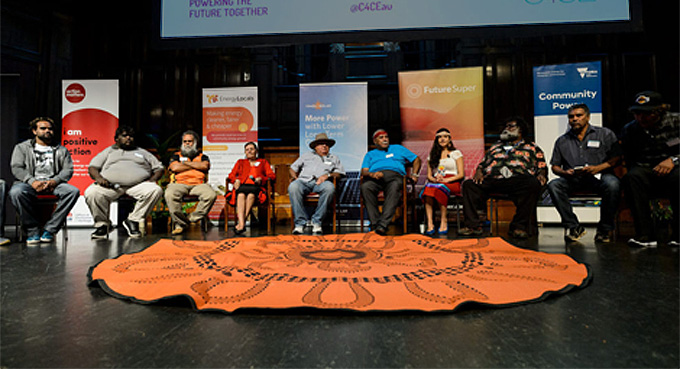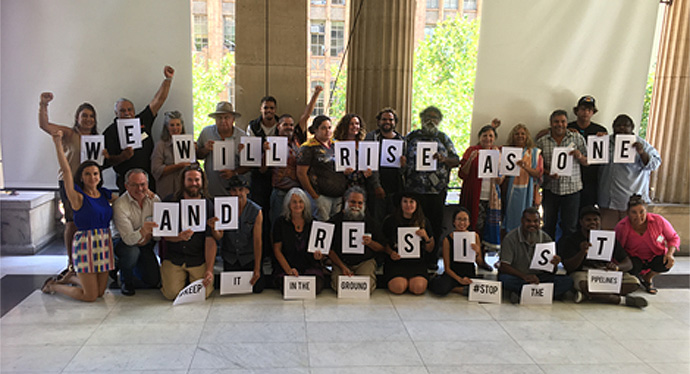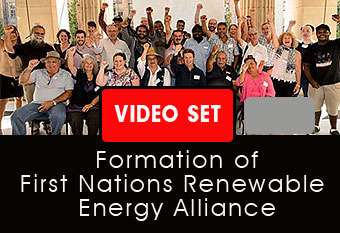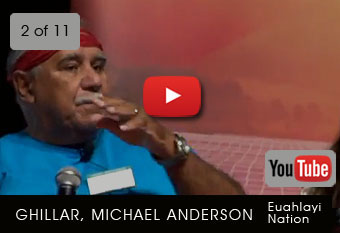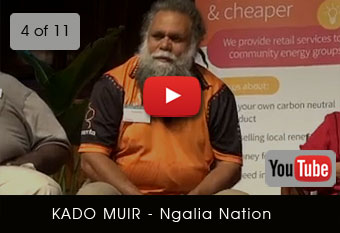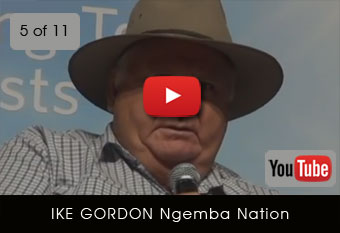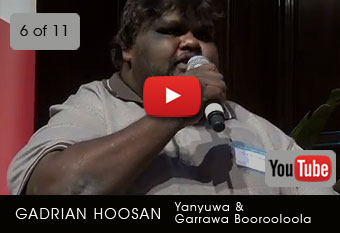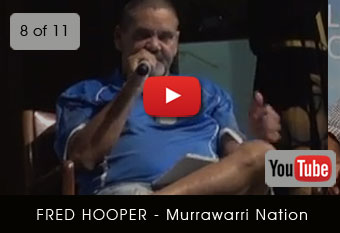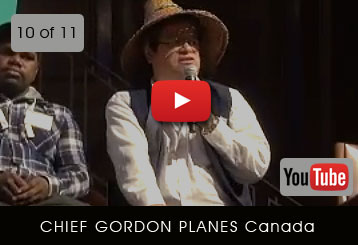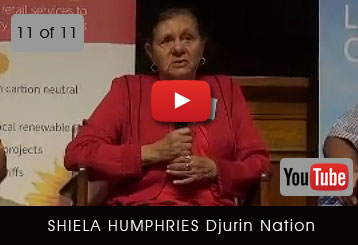Formation of First Nations Renewable Energy Alliance
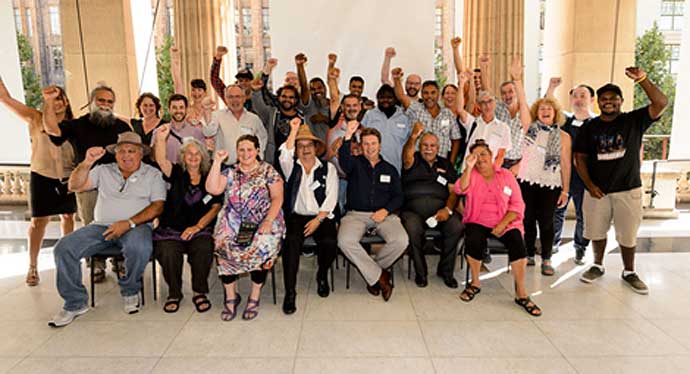
Enlarge Image
Formation of First Nations Renewable Energy Alliance - February 2017
Grassroots energy enterprises, which numbered more than 80 people nation-wide formed an alliance to harness the power of communities to increase local energy security, bolster regional development partnerships, enhance community cohesion, reduce carbon emissions and work towards a just energy transition.

Ghillar, Michael Anderson 3 March 2017
"Members from First Nations across the continent successfully participated in the Coalition for Community Energy held in Melbourne Town Hall on 27 - 28 February 2017 and took the initiative to form the First Nations Renewable Energy Alliance to partner with private enterprise and other community energy alliances to support First Nations communities across Australia to transition to renewable energy.
"This Alliance initiative is directed at ensuring remote and isolated communities are sufficiently catered for in respect to their energy needs. The current Australian corrupt system of energy delivery is controlled at the top level by government officials and politicians, who gain a lot of private funding for their political campaigns, in other words: 'You scratch our backs and we'll scratch yours.' The level of corruption in Australian politics is so entrenched that the equity in engagement in respect of sustainable energy strategies is not possible under the current regime.
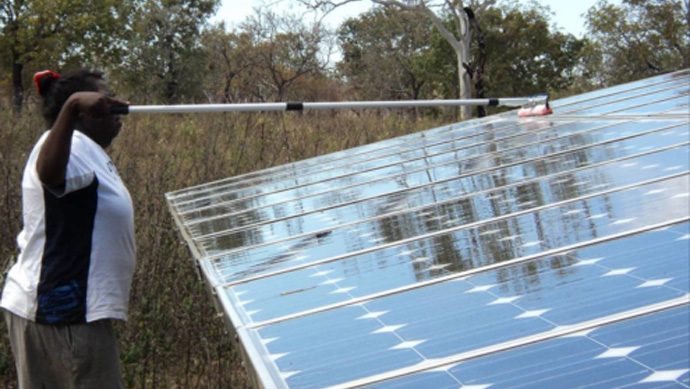
Canadian First Nations have been rebuilding their communities over the past 15 years with successful renewable energy projects that are bringing pride and increasing the wellbeing of each community. These successful hydro and solar projects represent not only the critical importance of clean energy, but the central role the natural world plays; a force that has guided and inspired these nations for thousands of years. This connection to the power of the natural systems that govern all life, are at the heart of these projects. It is with this understanding that these communities plan 100 years into the future for their children and their children's children.
First Nations Renewable Energy Congress
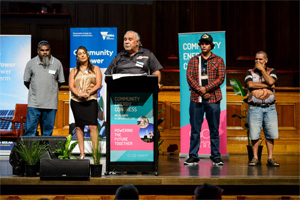

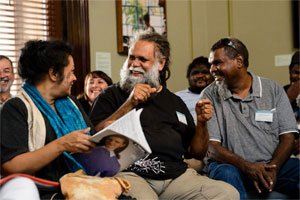
Enlarge Image
Click images to enlarge
"A clear example of the level of corruption can be found in the coal seam gas programs and coal mining operations. Two classic examples can be identified when we look at John Howard's 10-point plan of 1998 to amend the Native Title Act in favour of mining companies and State governments to erode and deny Aboriginal rights to Country and the necessity to negotiate.
"During the parliamentary debates for the amendments the deputy PM and Nationals leader, John Anderson, had significant share holdings in Eastern Star Gas, which was operating 650 wells on outskirts of Pillaga Scrub in northwest NSW. At this time Santos had 16% share interest in Eastern Star Gas. A major spill and accident occurred at a couple of the wells at a time when John Anderson was deputy Chair of Eastern Star Gas. After this major incident the Former deputy PM and Nationals leader John Anderson was paid an amount of $100 million plus.
"It should be noted that after John Anderson resigned as deputy PM and Nationals leader John, his colleague Mark Vale was elected by the Nationals to take over John Anderson's positions as deputy PM and Nationals leader. When Mark Vale retired from politics he then became the Chairman of White Haven Coal, which now operates very controversial coal mining in the Gunnedah Basin. This coal mine is also inside the old electorate of Gwydir, where Former deputy PM and Nationals leader John Anderson had a mortgage as an elected member for this electorate - an electorate that was altered by the Electoral Commission after John Anderson resigned from national parliament.
First Nations Renewable Energy Allliance, as a catalyst agent alliance, will now focus on partnerships and can direct major companies on their engagement with Aboriginal communities throughout Australia. The Alliance is a one-stop location for understanding the protocols for engagement with prospective Aboriginal communities, more importantly those who are members of the Alliance Steering Committee are well versed in the community politics.
Community Energy Congress Melbourne February 27 - 28th February
Moreover, they understand how government and fossil fuel companies use their excessive dollars to buy off and manipulate community members, so as to maintain division and thereby create dysfunction and uncertainty for future investors. Our communities have been abused and used by corrupt bureaucrats to ensure dysfunction and disunity in our communities.
We will direct our energies now and in the future to ensure that this corruption does not continue and thereby give direction to secure certainly for those who seek to partner with us to provide for the development of sustainable communities."
 Contact: Ghillar Michael Anderson
Contact: Ghillar Michael AndersonConvenor of the Sovereign Union and Head of State of the Euahlayi Peoples Republic
Contact Details here
First Nations Renewable Energy Alliance media release
Formation of First Nations Renewable Energy Alliance, a pioneer moment at Community Energy Congress
Over 25 First Nations delegates from around Australia attended the Community Energy Congress in Melbourne on the 27th and 28th of February, and an outcome of forming an inaugural First Nations Renewable Energy Alliance was achieved.
The First Nations delegates who attended were very excited to gain information about the rise of renewable energy sources in Australia and how First Nations and their People's can spearhead projects in this new and exciting era of energy generation.
Members of the following Nations that were present; Euahlyia Nation Goodooga NSW, Ngalia Nation Leonora WA, Yidinji, Mbarbarum & Njadon Nations Cairns QLD, Nyemba Nation Brewarrina NSW, Wongathar Nation Kalgoorlie WA, Dadaway Nation Kimberley WA, Yanyuwa & Garrawa Boorooloola NT, Murriwarri Nation Weilmoringle NSW, Noognar Nation Perth WA, Tjapawrung, Brabrooloong & Krauatungulung Clans Vic.
The First Nations delegates presented their stories and held many discussions throughout the two days to workshop issues around the delivery of renewable energy to First Nations communities throughout the country and were very concerned about tactics that have been employed by some of the big energy providers shutting renewable energy out of communities. The members who attended felt that there should be the formation of a First Nations Renewable Energy Alliance to lobby Government, to partner with private enterprise and other community energy alliances to support First Nations communities across Australia to transition to renewable energy. Breaking the cycle poverty, reliance on dirty fossil fuels and reducing impact of large power bills that are often as much as $5,000 per quarter in some remote communities.
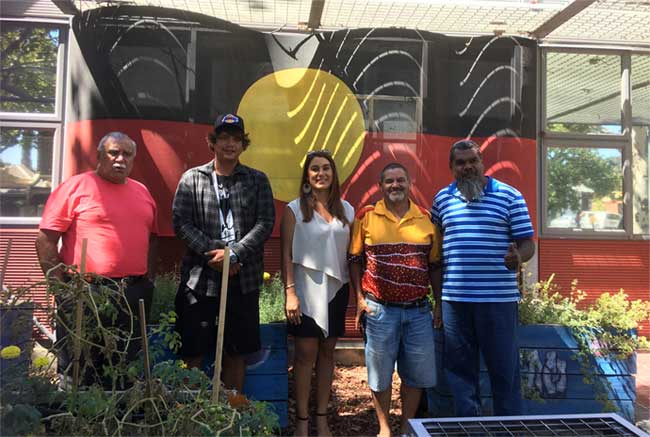
Enlarge
Steering Committee of the First Nations Renewable Energy Alliance
L-R Ghillar, Michael Anderson, Nicholas Fitzpatrick, Lidia Thorpe, Fred Hooper & China, Dean Morgan
The Alliance established a Steering Committee of seven First Nations members to progress actions and relationships with experts and other community energy organisations throughout Australia and across the world. The First Nations members present were extremely impressed with the way that renewable energy has been received by other First Nations such as the Tsu'ke Nation and Lubicon Cree in Canada who were represented by Chief Gordon Planes and Melina Laboucon-Massimo who have offered to build further relationships with First Nations people through this Alliance. Soren Hermansen from Samso Island, Denmark was a key part of the discussions over the two days around self-determination and self-governance for First Nations people, also committing supporting to furthering global partnerships.
The Committee would like to thank the following for their support; The Valley Centre for co-ordation; 360.org Energy group who has pledged $10,000 and the use of their office space and other resources for the development and inauguration of the First Nations Renewable Energy Alliance; Getup! for their support and Alternative Technology Association and Community Power Agency who have been instrumental in the process of the First Nations gathering at the Congress.
Media contacts: Fred Hooper 0427 957 960 & Ghillar Michael Anderson 0499 080 660




